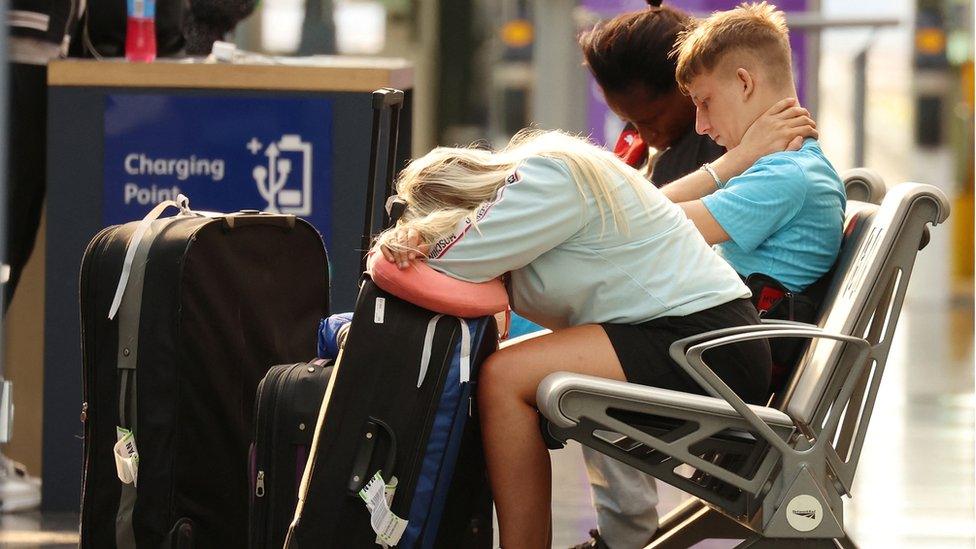Train strikes: Yorkshire railway stations fall silent
- Published
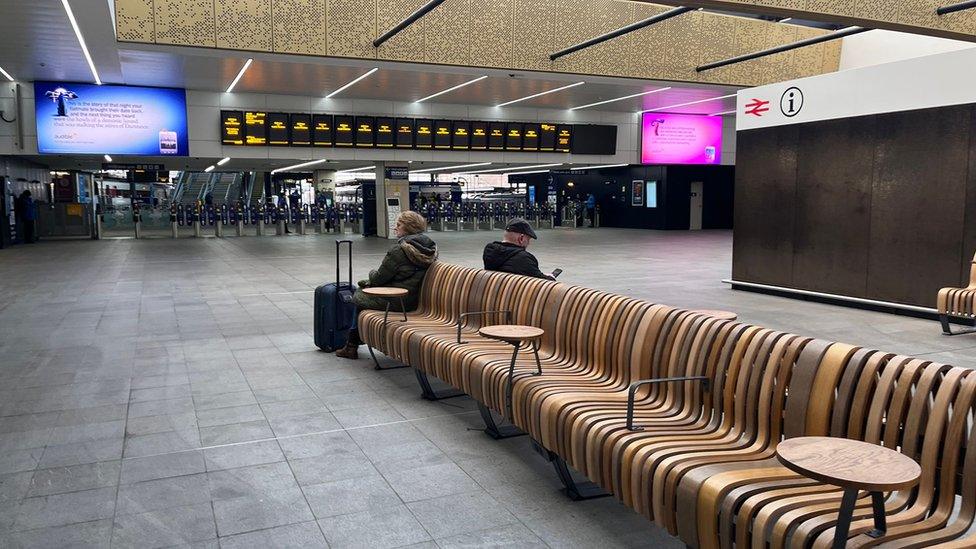
A normally bustling Leeds station was a lot sleepier as the strikes bit
Normally bustling city railway stations fell largely silent as the latest wave of train strikes took hold.
A walkout by drivers in the Aslef union on Wednesday left hubs in some of Yorkshire's biggest cities in a state of unfamiliar torpor.
Halls and platforms which usually ring to the sound of chatter, announcements and the dull thud of arriving and departing trains became quiet.
The strike action revolves around pay, job security and working conditions.
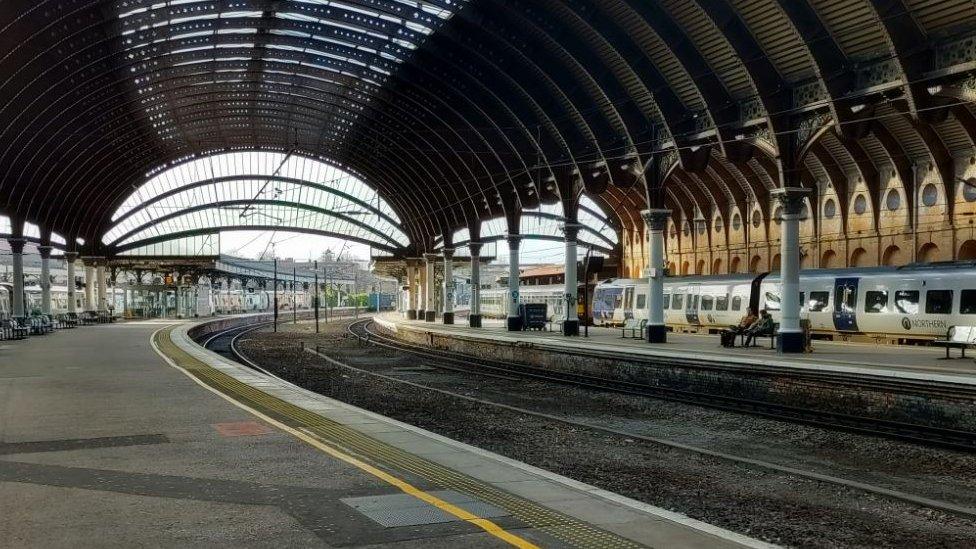
There was an air of calmness below the arches of York railway station's roof
Services from TransPennine, East Midlands and Northern, which normally pepper timetables in the region, were largely absent.
The Rail Delivery Group (RDG), which represents train companies, made an offer which would have seen train drivers receive a backdated pay rise of 4% for 2022 and a 4% increase this year.
Mick Whelan, general secretary of Aslef, said the proposal was unacceptable, but said the union was "willing to engage" in further discussions.
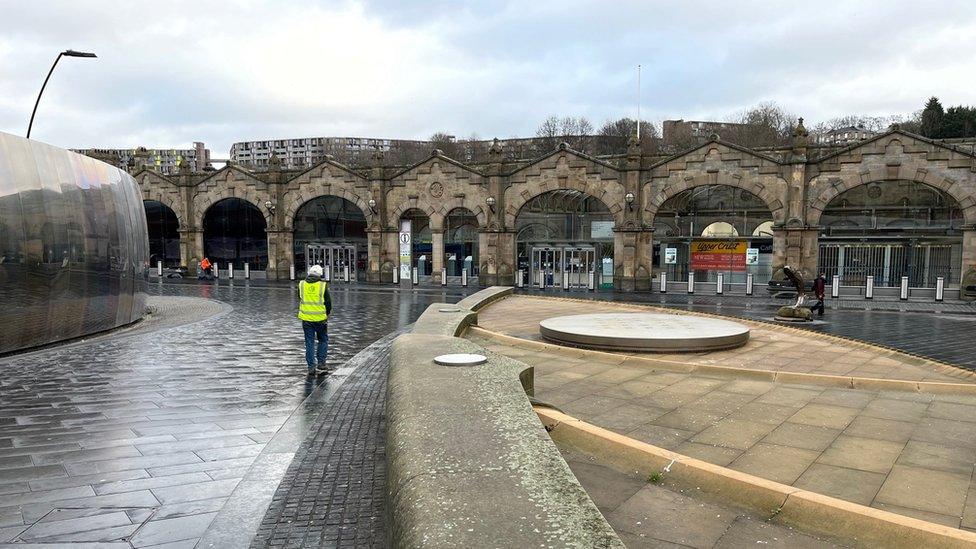
Sheffield railway station was left nearly deserted as rail strikes reduced the number of services running on Wednesday
While travellers had generally avoid letting the train take the strain, the taxi drivers who populate the spaces around the transport thoroughfares despaired at the paucity of available fares.
Gary Bradley was waiting patiently for his next customer in York at 11:00 GMT.
The 44-year-old has been a taxi driver for 17 years and said he relied on trade from the railway station.
"The thing I care about is the impact the strike is having on us," he said.
"I've done just four jobs this morning from quarter past six. I would've usually done about 12 by now.
"When the train strike is on I probably earn about 30% of my normal daily earnings.
"But they've got to do what they've got to do, I can't do anything about it can I?"
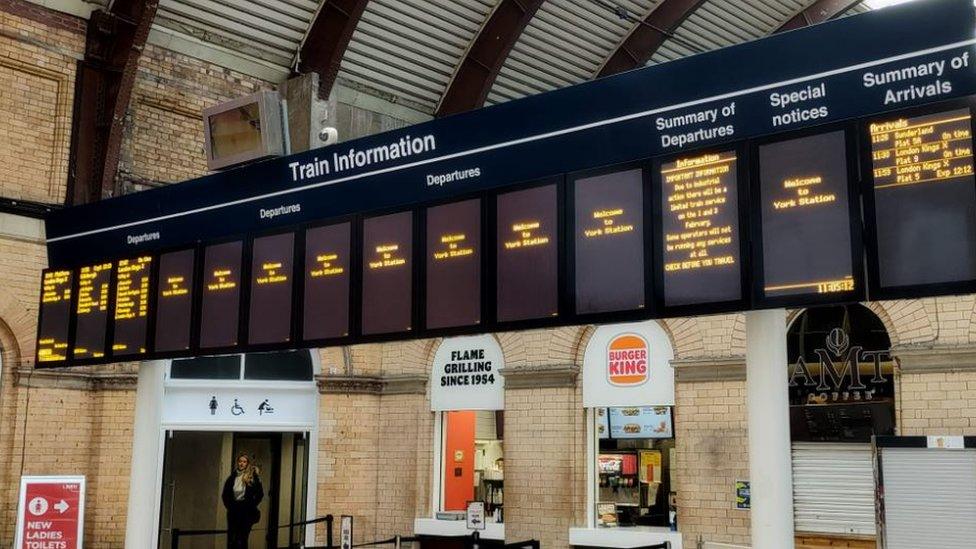
Many train services had been either suspended or reduced
Majid Khan, a taxi driver in Sheffield, said the ongoing dispute meant "a big impact on living".
"If you work the expenses out, there's a fee for the permit and you're earning less than minimum wage.
"Obviously, you just have to bear with it, but it's giving me anxiety and stress because once you're not financially viable then it makes you think, are you going to be able to pay the bills and put food on the table?
"I know loads of black cab drivers who have left."
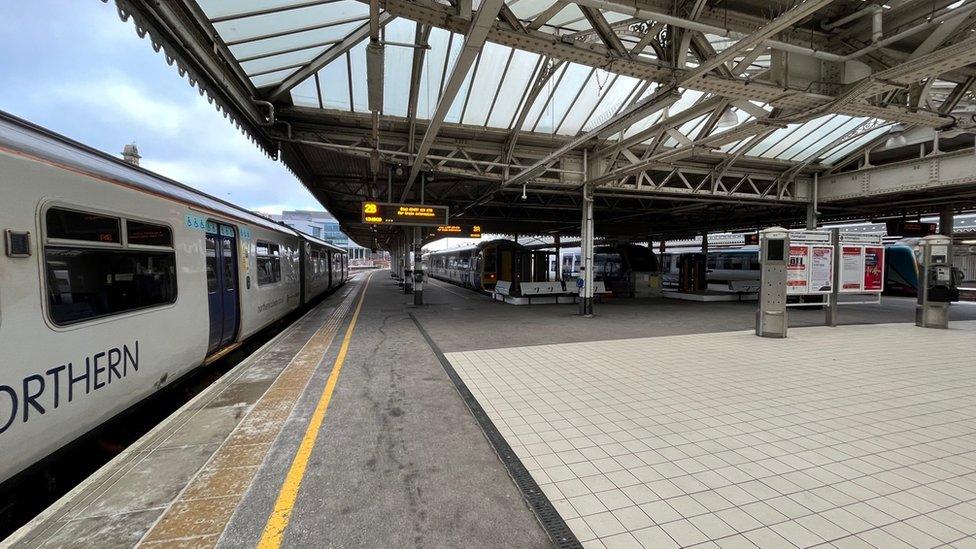
An empty platform at Sheffield railway station
He said he would normally have a steady stream of jobs, usually waiting 15 minutes for a customer on a quiet day "and if it's busier, it's five minutes".
But on strike days Mr Khan said he had seen trade drop to "three or four jobs in a whole eight to 10-hour shift".
"You end up getting frustrated and try picking up in town or Meadowhall.
"I just hope the government and the railways resolve it asap, because it's having a wider impact not just on taxi drivers, but the shops, people aren't coming into the city."
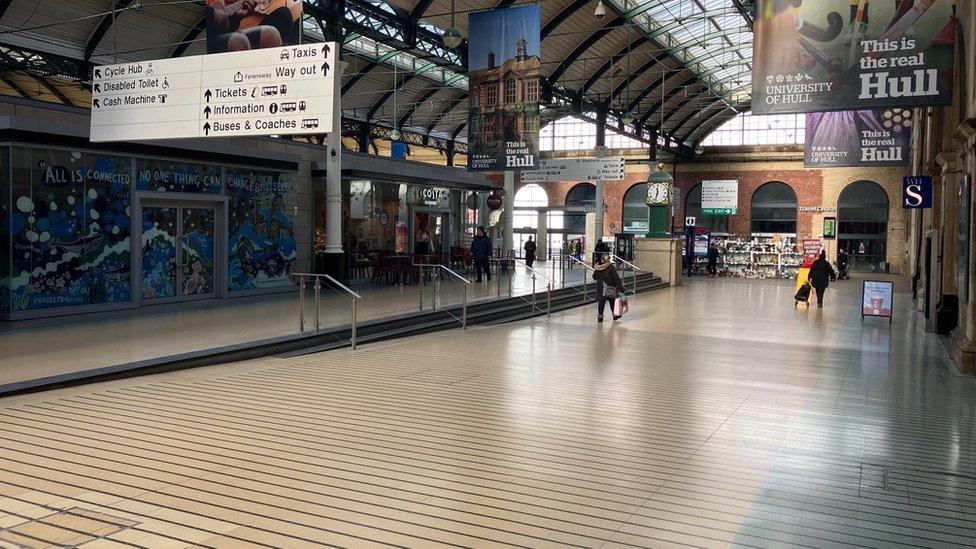
There were similar solitary scenes at Hull railway station
One taxi driver in Hull, who wished to remain anonymous, said he did not support the strike action due to the "massive impact" on businesses in the city.
He said his trade had dropped by more than 50% as a result of the walk-outs.
"Why are they all saying they want sympathy for their cause when they're on £30,000, £40,000 or £50,000 a year? What about the little tea shops in Hull especially on a Saturday when they strike - they just don't earn any business whatsoever.
"I find it disgusting and I think they should all be ashamed of themselves."
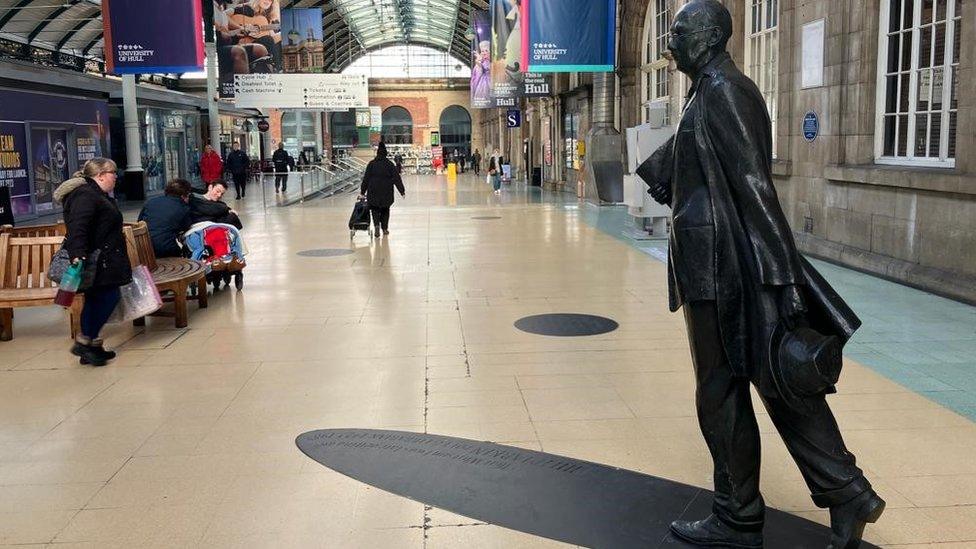
Philip Larkin looked on as a few people used Hull's station
Khan, a black and white cab driver in Leeds, had been queuing at the taxi rank outside Leeds station since 08:00 GMT and was still waiting for his first customer three-and-a-half hours later.
"When there isn't a strike I can usually take home £10 or £15 [per fare], but today I don't think so."
He said trade had been struggling since the pandemic but strike action had made the situation worse.
"There's so many things hurting us.
"There is no future for a black and white. People are selling their cars."
Another day of train strikes is due to take place on Friday 3 February.
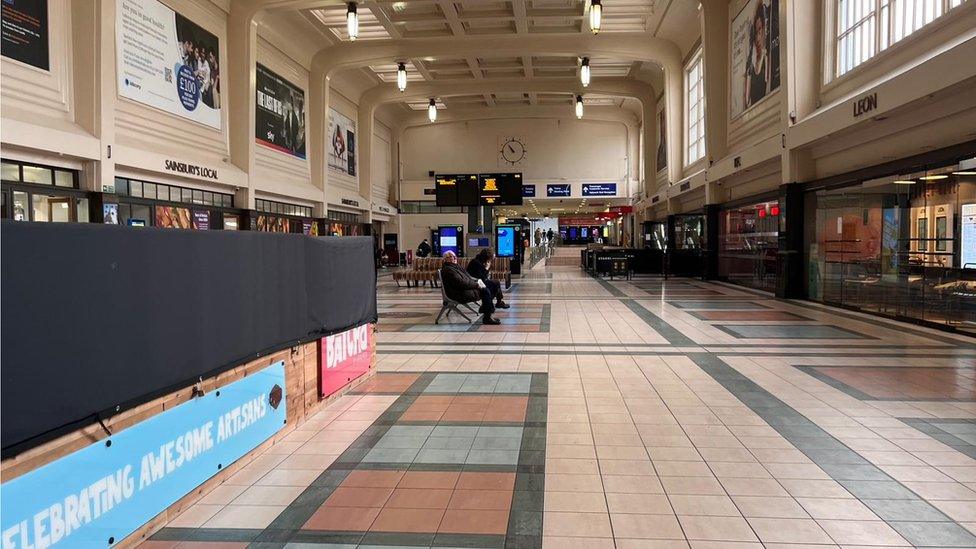
The food shops in Leeds station were short of customers

Follow BBC Yorkshire on Facebook, external, Twitter, external and Instagram, external. Send your story ideas to yorkslincs.news@bbc.co.uk, external.
All pictures are BBC copyright.
Related topics
- Published9 May 2024

- Published21 June 2022
